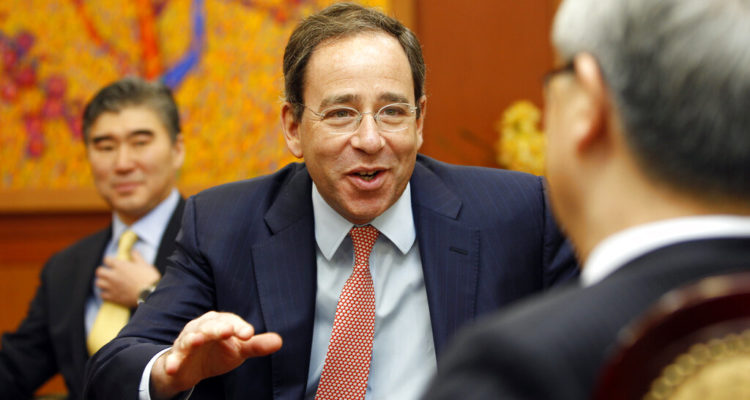U.S. officials took credit for easing the restrictions, with Ambassador Thomas Nides saying that American diplomats have been pressuring Israel for months to change the policies.
By Lauren Marcus, World Israel News
After new policies on the entry of foreigners into Palestinian Authority-controlled areas in Judea and Samaria sparked international backlash, Israel quietly walked back many of the measures, including a quota on foreign students at PA universities.
The Coordinator of Government Activities in the Territories (COGAT), a branch of Israel’s Defense Ministry which serves as a liaison between Israel and the PA and spearheads civil projects in the area, had released new regulations which limited the presence of foreigners.
The regulations were originally announced in February 2022 and slated to take effect next week.
Among the policies was a requirement that foreign citizens who intended to stay in PA-controlled territory for the long term due to a romantic relationship with a Palestinian would need to declare their engagement, marriage, or cohabitation within 180 days of their arrival.
The regulations also set a limit of 150 foreign professors and 100 foreign students at Palestinian universities. Foreign passport holders who intended to visit PA-controlled areas and who planned to reach their destination via Ben Gurion Airport would need to apply for visas 45 days in advance, rather than receiving a visa upon arrival.
Both the European Union and the United States released statements, expressing concern that the new guidelines could disrupt economic investment and educational and cultural ties in the region.
On Sunday, Israel updated its policies on foreigners entering PA-controlled territory, removing the quota on foreign students and professors and the requirement that foreigners declare romantic relationships with Palestinians to COGAT. The Israeli government also noted that the guidelines are currently in a two year “pilot period,” during which additional adjustments can be made.
U.S. officials took credit for the easing of the restrictions, with U.S. Ambassador Thomas Nides saying in a statement Sunday evening that American diplomats have been pressuring Israel for months to change the policies.
Today COGAT published its revised guidelines. Since February, @usembassyjlm, @USPalAffairs, & I have aggressively engaged with the Israeli Government on these draft rules – and we’ll continue to do so in the 45-day lead up to implementation & during the 2-year pilot period. 1/4
— Ambassador Tom Nides (@USAmbIsrael) September 4, 2022
“Since February, the U.S. Embassy Jerusalem, the U.S. Office of Palestinian Affairs, and I have aggressively engaged with the Government of Israel on these draft rules – and we will continue to do so in the 45-day lead up to implementation and during the two-year pilot period,” said Nides.
“I continue to have concerns with the published protocols, particularly regarding COGAT’s role in determining whether individuals invited by Palestinian academic institutions are qualified to enter the West Bank [Judea and Samaria], and the potential negative impact on family unity,” he said.
“It is important to ensure all of these regulations are developed in coordination with key stakeholders, including the Palestinian Authority. I fully expect the Government of Israel to make necessary adjustments during the pilot period to ensure transparency as well as the fair and equal treatment of all U.S. citizens and other foreign nationals traveling to the West Bank.”
Visa waiver as bargaining chip?
Israel’s request that foreigners who entered PA-administered areas on short-term business or tourist visas inform the government about a change in the length of their stay, due to marriage, an engagement, or cohabitation, is in fact no different than standard in many countries around the world, including the U.S.
Because foreigners involved with Palestinians would presumably stay in the region for longer than their tourist, visa, or educational visas had originally permitted, COGAT stated that they should report the matter as soon as possible so that their “status could be quickly normalized” and the appropriate identity or residency documents could be issued by the Palestinian Population Authority.
Similarly, the U.S. requests that visitors who enter the country on a tourist or student visa and then subsequently get married declare that development to the appropriate authorities.
Notably, an anonymous U.S. government official hinted that a potential visa waiver program was used as a bargaining chip with the Israeli government.
“These policies that COGAT will be issuing have an effect on American citizens, as they do on nationals of other countries,” the senior official told Times of Israel. “We will be looking at those closely and continuing the conversation with COGAT and other parts of the Israeli government as we move down the path toward visa reciprocity.”





